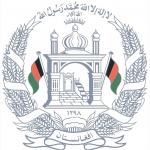The 64th IAEA General Conference started with the opening statement of the IAEA Director-General Rafael Mariano Grossi, which stated that the IAEA continues to work arduously to prevent the misuse of nuclear material during the COVID-19 pandemic and highlighted the equipment contributions the IAEA has made for combating the coronavirus.
During the plenary session of the IAEA General Conference, Dr. Tahir Sharan, Director-General of Afghanistan’s Atomic Energy High Commission delivered a statement thanking the IAEA, and its Director-General H.E Rafael Mariano Grossi, for the efforts made in supporting the Islamic Republic of Afghanistan during the COVID-19 pandemic. With the support of the IAEA, the Afghanistan National Nuclear Regulatory Authority has managed to finalize three regulations on licensing, transportation, and nuclear waste. Additionally, Dr. Tahir Sharan spotlighted that Afghanistan, with the support of its main implementing partner, Afghanistan Nuclear Energy Agency, has started to implement the projects defined in the Country Programme Framework signed at the IAEA’s 63rd General Conference last year. The projects will last until 2023 and center around Radiation Safety Infrastructure, Food and Agriculture, Human Health and Nutrition, and Human Capital Development.
Ambassador Ebrahimkhel participated in a plethora of Side Events scheduled at this year’s General Conference. The event “A Global Voice on Gender Equality in Nuclear: The Role of the IAEA” illustrated the importance of equal representation in the nuclear sector and of challenging the status quo to build a better future for all. Ambassador Ebrahimkhel attended this important event to support and speak to the new generation of Afghan women leaders in nuclear science and technology and assured Afghanistan’s full support to the launch of the IAEA Marie Sklodowska Curie Fellowship Programme.
Additionally, Ambassador Ebrahimkhel attended the IAEA-IsDB’s (Islamic Development Bank) event on the initiative “Saving Women’s Lives From Cancer”. The initiative expands comprehensive cancer care for women affected by cervical and breast cancer in the world’s poorest countries. Ambassador Ebrahimkhel attended this side event to state the importance of providing technical support to developing countries to combat breast cancer. One of the main priorities of the strategic plan of the Embassy and the Permanent Mission of Afghanistan in Vienna is strengthening technical cooperation in the area of health, health for Afghan women, and general cancer support treatments for Afghanistan. IAEA support for Afghanistan in the areas of capacity building and training in areas related to cervical and breast cancer is of utmost importance.

